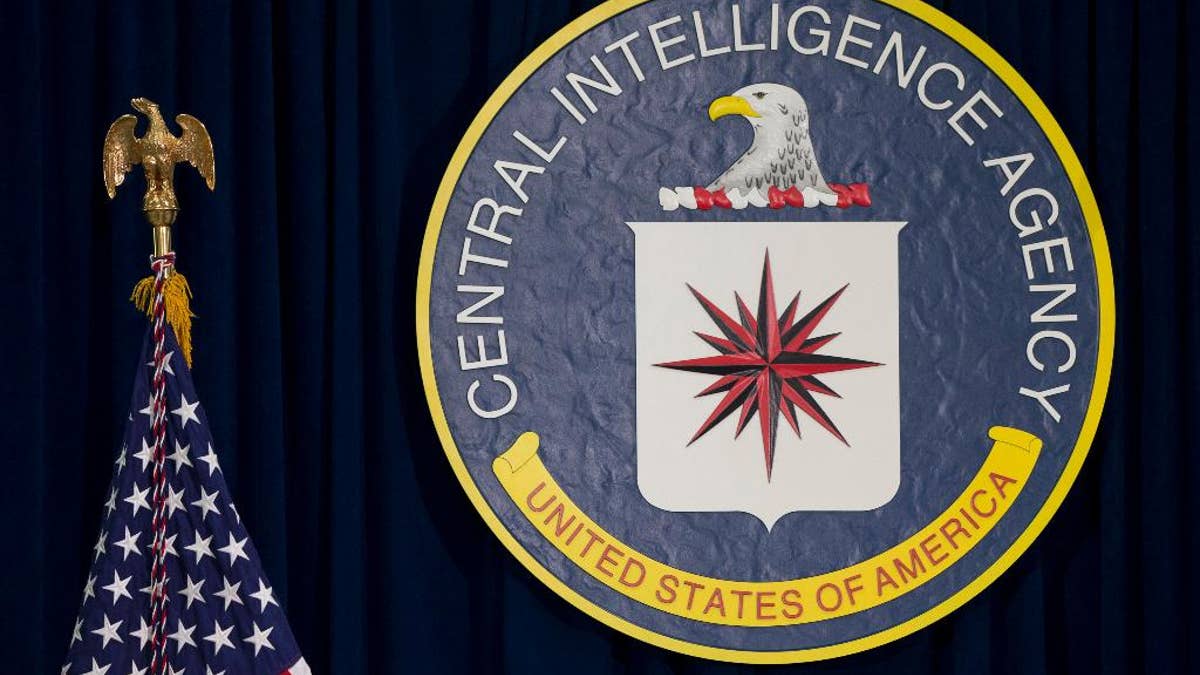
FILE - This April 13, 2016 file photo shows the seal of the Central Intelligence Agency at CIA headquarters in Langley, Va. A federal judge said Thursday, Jan. 19, 2017 that he's inclined to allow trial for a lawsuit against two psychologists who designed the CIA's harsh interrogation methods for the war on terror. The American Civil Liberties Union sued the psychologists on behalf of three former detainees, who claim they were tortured in CIA prisons. (AP Photo/Carolyn Kaster, File) (The Associated Press)
SPOKANE, Wash. – Psychologists who designed the CIA's harsh interrogation methods for the war on terror want a lawsuit from three former detainees dismissed, but a federal judge said Thursday that he was inclined to allow it to move to a trial that was expected to include classified information.
The American Civil Liberties Union sued the U.S. spy agency on behalf of Gul Rahman, who died in custody, and Suleiman Abdullah Salim and Mohamed Ahmed Ben Soud, who claim they were tortured in CIA prisons. The lawsuit says interrogation methods such as waterboarding were developed by psychologists James Mitchell and John "Bruce" Jessen, whose Spokane, Washington, company contracted with the CIA.
U.S. District Judge Justin Quackenbush heard arguments on whether Mitchell and Jessen acted as agents of the federal government, which could make them immune from lawsuits, or as independent contractors. Lawyers for both sides also debated whether the former detainees were considered enemy combatants, blocking them from pursuing a claim.
"They were explicitly identified as enemy combatants," said James T. Smith, a lawyer for the psychologists. "If an individual supports the Taliban, they are an enemy combatant."
But Dror Ladin, an attorney for the ACLU in New York City, said none of the three was officially found to be an enemy combatant. Even so, Rahman died two weeks after being detained.
"He was left to die of hypothermia chained to a floor in a dungeon," Ladin said. "He was not an enemy combatant."
The other two detainees were never charged with any crimes and are now free.
The judge said he would issue a written decision later but added, "I am inclined to deny the motion to dismiss." A trial is set for June.
Mitchell and Jessen designed the interrogation methods and took part in sessions with CIA prisoners, according to the Senate Intelligence Committee's investigation into the torture program.
Techniques included slamming the three men into walls, stuffing them inside coffin-like boxes, exposing them to extreme temperatures, starving them, inflicting various kinds of water torture, chaining them in stress positions designed for pain and keeping them awake for days, the ACLU said.
The psychologists have said in court documents that they used harsh tactics but denied allegations of torture and war crimes.
"Every action taken by our clients was taken at the direction of the principal, which was the United States of America," said Smith, lawyer for Mitchell and Jessen.
But the ACLU's attorney argued that the psychologists were independent contractors, paid millions of dollars for their work, and could face lawsuits.
"Independent contractors are not ordinarily agents," Ladin said.
The Justice Department got involved in the case to represent the government's interests in keeping classified information secret but has not tried to block the lawsuit. Experts called the government's stance unprecedented but also a recognition that a once-secret program is now largely out in the open.
The defendants founded Mitchell, Jessen & Associates in Spokane in 2005 and contracted with the CIA to run the interrogation program. The government paid the company $81 million over several years.

